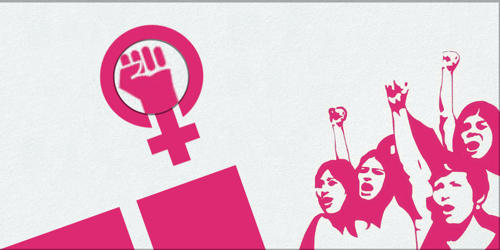The Role of Women in our Economy
Bangladesh is a small developing country. Women are the primary caretakers of children and elders in every country of the world. Nearly 163 million people live in this country. Of the total population, 50% are women. After the liberation of Bangladesh, a great change has come to our country. The contribution of women to a society’s transition from pre-literate to literate likewise is undeniable. The rate of illiteracy is being reduced. The government has undertaken various projects to eradicate illiteracy. Basic education is key to a nation’s ability to develop and achieve sustainability targets. Free and compulsory primary education has been introduced. Better facilities for the girl-students have been provided so that they can receive an education free of cost up to higher secondary level. Moreover, they are provided with a stipend up to that level. As a result, the rate of literacy among women has been significantly increased.
Women have started joining the workforce, contributing to family income, and thus started exercising an influence on family affairs. Though women have always worked the household work, this is not commonly counted as ‘work’. If women’s participation in economic development is to be enhanced, women must receive the following services: training in income-generating activities, easy access to low-interest loans, and family planning services to limit childbearing.
The presence of working women outside the home indicates a conspicuous change in our society. Whether it is due to economic necessity or the urge to establish an individual identity or both, a large number of women are entering the outside workforce and they are joining a wide range of progressions. Women are now becoming doctors, nurses, teachers, military officers, police, administrators, executives, and thus they are entering all kinds of jobs. It is not only educated women who are opting to work but women with a little or no education have come out of their home to earn and become self-reliant.
Now 1,8500,000 women in rural areas and 2,800,000 women in the urban areas are engaged in income-generating activities, supporting themselves and their families. Women’s role in agriculture cannot be underestimated. Women in rural areas are directly engaged in various activities during the harvesting period.
A large number of women are engaged in cottage industries in rural areas. Their handicrafts are in great demand at home and abroad. We are earning a lot of foreign exchange by exporting these products. Rural women play a key role in supporting their households and communities in achieving food and nutrition security, generating income, and improving rural livelihoods and overall well-being.”
The women in Bangladesh are playing a vital role in, textile, knitting, and readymade garments sector. About 85% of the total working force in the garments sector are women. They have proved their skill and efficiency very effectively in this sector. We know that readymade garments are the largest sector of earning foreign exchange in our country and this sector is mostly dependent on our women workers.
In processing food crops and food staff, women are playing an important role. Similarly, our women are playing a significant role in construction sectors like the construction of high-rise buildings, shopping malls, etc. Many women are working as nurses and doctors overseas and thus they are sending a substantial amount of remittance to our country. Many women entrepreneurs have come forward to invest money in the industrial sector and thus helping us to increase our foreign exchange.
A significant number of women are engaged in planning and policymaking for the overall development of our country. Our government is now taking various steps to ensure the participation of women in our development efforts. To conclude, the role of women in our economy should be acknowledged. The participation of women in all sectors like politics, society, business agriculture, and family is really commendable.
















